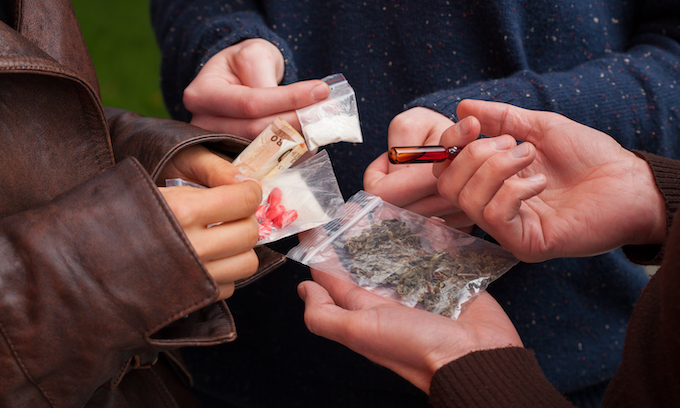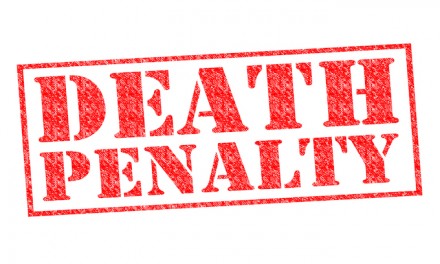Oregon’s new law decriminalizing the possession of small amounts of street drugs takes effect Feb. 1, 2021.
That’s also the date when the Oregon Health Authority is required to have appointed members for the oversight and accountability council that will evaluate which substance abuse programs statewide will get funding.
That panel is required to start distributing money by Oct. 1 under Measure 110, which voters approved this month. The money comes from state marijuana sales tax revenue and will go into a fund.
By Dec. 31, 2022, the Oregon Secretary of State must conduct financial and performance audits regarding the effectiveness of the new fund.
Oregon made history this month by becoming the first state to decriminalize small amounts of heroin and other street drugs.
The measure has three key components:
– It reduces misdemeanor drug possession to a non-criminal violation on par with a traffic offense. People with small amounts of drugs including heroin, cocaine, methamphetamine, ecstasy, LSD, psilocybin, methadone and oxycodone will get a ticket and face a $100 fine or have the option of being screened for a substance abuse disorder.
– It reduces penalties for what are now felony drug possession cases, which involve larger quantities. Under Measure 110, most of those offenses will be misdemeanors.
– It funnels millions in marijuana tax revenue toward what it calls Addiction Recovery Centers, where people can be screened and directed to treatment options. Those tax dollars will also go to a Drug Treatment and Recovery Services Fund overseen by the state that could be used to pay for treatment, housing or other programs designed to address addiction. The committee appointed by the Oregon Health Authority will oversee the distribution of the funding.
State Senate President Peter Courtney told The Oregonian/OregonLive in an interview after the election that the Legislature will play a role in the rollout of the new law. He said he expects lawmakers will consider the policy’s financial implications and how to provide meaningful intervention for people in the throes of addiction. He said he expects lawmakers to take up the policy over the next two sessions.
Anthony Johnson, a key proponent of the measure, said lawmakers doesn’t need to weigh in for the new policy to go into effect.
“Nothing in the measure forces the Legislature to get involved,” he said.
Meanwhile, prosecutors in the region are assessing how they will handle drug possession cases between now and Feb. 1. The Clackamas County District Attorney’s Office notified police officials last week that it would stop charging new cases that fall under the new law. The office will treat as violations drug possession cases filed before the election.
“It is our belief that having officers investigate and submit cases for a prosecution in the weeks leading up to February 1, which will not lead to any sanction or court supervised treatment, is not the most effective use of criminal justice resources,” Chief Deputy Chris Owen wrote to police officials.
Brent Weisberg, a spokesman for the Multnomah County District Attorney’s Office, said the office “continues to review and plan for the implementation of Measure 110,” including how to handle pending cases.
— Noelle Crombie; [email protected]; 503-276-7184; @noellecrombie
___
(c)2020 The Oregonian (Portland, Ore.)
Visit The Oregonian (Portland, Ore.) at www.oregonian.com
Distributed by Tribune Content Agency, LLC.
—-
This content is published through a licensing agreement with Acquire Media using its NewsEdge technology.



















This is the part that weakens us as a country to such a point that even the NRA cannot save us if the west coast gets attacked by the Chinese.
Right now if china invaded, i say LET THEM DESTROY THE WEST COAST…
This is wonderful Oregon. Zonked out people with more and more crime. Wow! Way to go. And there is a bonus, they will be irresponsible, and unable to work. That’s ok. The taxpayers will take care of them for as long as they live.
Being sarcastic. Incredible to see a once great Empire fall. As in the cases of all other empires such as the Babylonian, Medo-Persian, et al empires, it was an inside job. “It is not in man that walketh to direct his own steps.” Jeremiah 10:23 That verse is just as relevant today as it was when written. The inerrant, inspired Word of God. That is what I love about God and His Word. It was written by inspired men, for all man, for all time. It never changes with time, but guides us, because God loves us.
Biden will certainly finish us off. After hearing his picks for his administration. . . very painful to hear.
Just to be clear, I was being sarcastic with the previous paragraph. Not about God and His Word. Apologies for the error.
IMO THIS IS what the 80 million fools WANTED.
You mean the 80 million bogus votes with rigged voting machines, dead voters, and duplicate mail in ballots! If Joe Hiden got 5 million legit votes he got 5 million too many!!
JUST In LA alone, there’s 30+ million COMMUCRATS.. Add in San fran, Seattle, portland, NY and the like, and i can easily see 60 mil OF that 80 mil, being legit.
“For want of a nail the shoe was lost. For want of a shoe the horse was lost. For want of a horse the rider was lost. For want of a rider the battle was lost. For want of a battle the kingdom was lost.”,,,,,,,,this time for want of a toke the brains were lost, soon also followed by the heads of our nation.
So Oregon will have addiction recovery centers, but on the other hand, allow people to use hard drugs. The logic of the communist left, which is no logic at all. The mass destruction of society, and the dumbing down of society (high on drugs), so one has a one party state, the communist Democrat party. Let us all vote Democrat, because I am dumbed down, by being high on hard drugs all day long.
Since there are recovery centers for alcohol, would you also propose banning all alcohol? Where should the line be drawn for government interference in personal lives and decisions?
I think what he was tryin to point out is WHY BOTHER CONDONING hard drugs, WHILE having recovery centers? ITS moronic..
It’s decriminalizing it, not condoning it and treating as favorably as alcohol. There are recovery centers for alcohol abuse funded at the state level.
A 50 year old homeless man who has wrecked his life with alcohol abuse for the last 30 years is free to spend the 15 dollars he just begged for on more booze instead of the food he said he wanted. He is free to walk out of the store with the life destroying booze, just like he has for the last 30 years. How many times has he walked by a policemen on his way home to beat his wife?
A young person doesn’t need 30 years of alcohol to screw up his life. Caught with the wrong stuff a couple times as an 18 year old can give him a criminal record and posable jail time that affects his job prospects for a long time to come.
How much control should the government have over what an individual puts in their own body? Controlling soda amount is overreach but no limits on alcohol. Is government overreach when it controls something you like and not overreach when it controls something or someone you dislike?
Limited government should be for everyone.
WELL they already control our bodies, by having the FDA CERTIFY FOOD AND DRUGS (legal), as well as dictating to us what we can and cannot donate /when/how…
I see NO GOOD coming out of ‘decriminializing hard drugs’.
Like not forcing THE PEOPLE to pay for poor life choices, just the drug users and alcoholics is damaged livers and brains, and jail sentences when they drive over our kids in states of inebriation. Cross that line and you’re on your own.
ANd though it sounds harsh, i say, LETS ALSO Stop wasting tax payer money, on those “Overdose saving kits’..
My condolences to the good people of Oregon, you are screwed. Coming from CO, the fallacy of the legalization of weed and the promise of “TAX DOLLARS,” is just that, a fallacy when ALL is considered. Politicians will sell their soul for the chance at one more tax dollar to spend, they simply cannot help themselves, it is an addiction, much like the drugs, along with that sale is the sale of the lives of your children and your way of life. Having had personal experience with the effects of the drug on a grandchild, I can assure you, for some it is a death sentence. Go to the provided link, it will help support what I have said.
https://www.theepochtimes.com/the-true-cost-of-marijuana-a-colorado-town-that-went-all-in_3546091.html
This is why PORTLAND needs to be BROKEN OFF the rest of the sane state.
Agree, it drives everything to the black market for lower prices on drugs of choice and helps keep the Mexican Cartels in business!
The Communist Chinese figured out how to get rid of the drug problem a long time ago. They legalized opium. They got all the addicts signed up for their free fix, courtesy of the Communist Government.
Then after 2 years, one morning Mao sent out the troops to round up all the opium addicts. Since they had names and addresses of all the addicts, it was easy to round them up.
The troops took them out to a field and shot and killed every addict in the country. Mao eliminated a drug problem in a matter of a few hours.
When government finds you are not a benefit to the government, they will look for ways to get rid of you. This is how Socialism and Communism works. Whether it’s the death panels of Socialized medicine or rounding up the addicts and disposing of them.
Welcome to the NEW WORLD ORDER, as this is how reality of the world actually works. Think it cannot happen here, just look at Venezuela where it happened in less than 20 years.
AND when it happens to those stoners and addicts, i won’t shed a single tear for them.
I’m Taking bets on the Government making Substance Abuse a Handicap that will payout monthly benefits if and when Hiden Joe and Camel Toe get in office!! You will get a check to stay home and shoot up, snort and smoke and we can even throw in obesity while we are at it!! This will be part of the Universal Income Global Reset!! Everyone who sees this post has to see the Movie Idiocracy with Owen Wilson’ brother Luke Wilson; it is hilarious, we have arrived there as a Country!!
I wouldn’t be shocked, if they did that.. JUST LIKE they have damn near every mental ‘twitch’, be something that can get someone on disability..